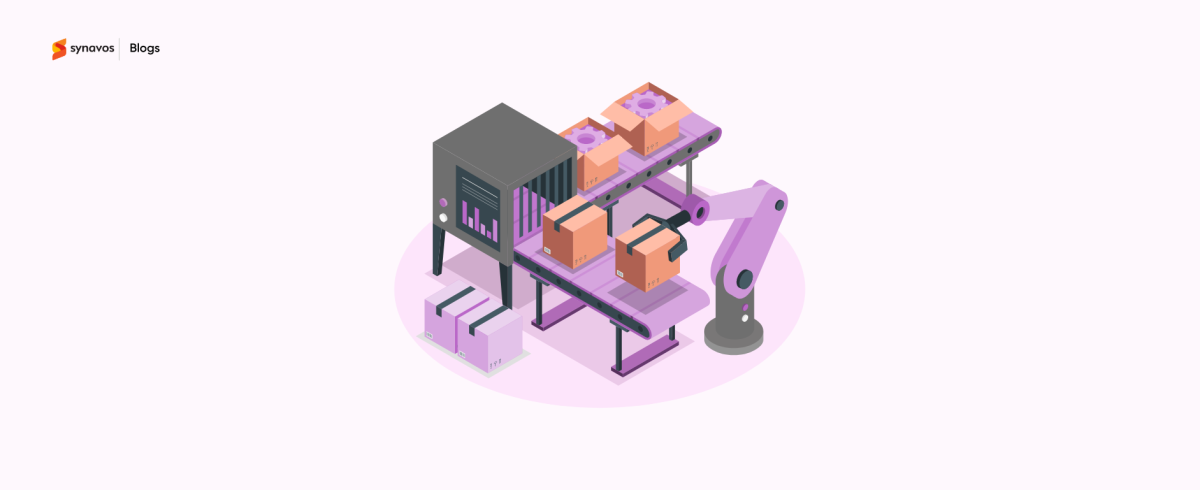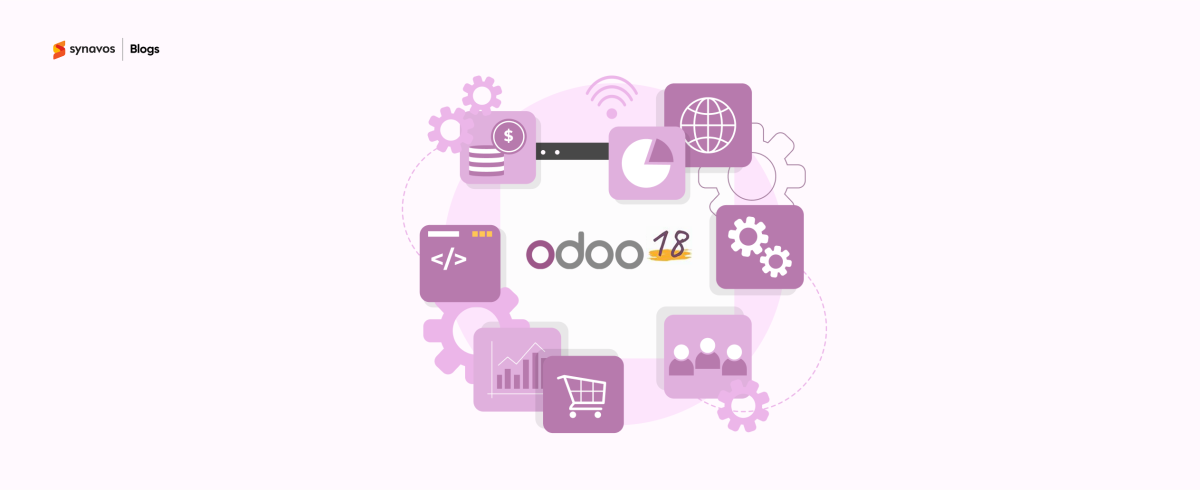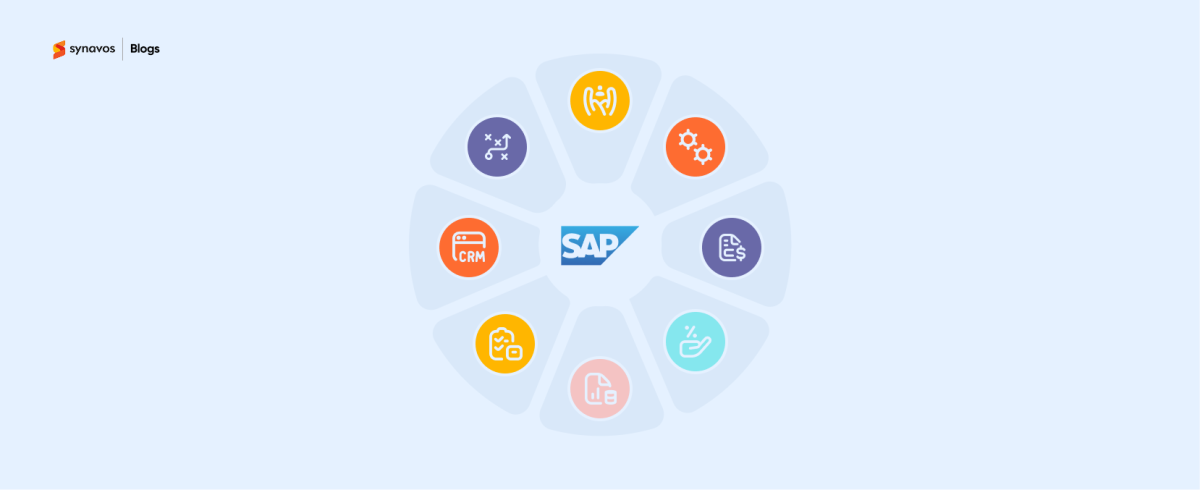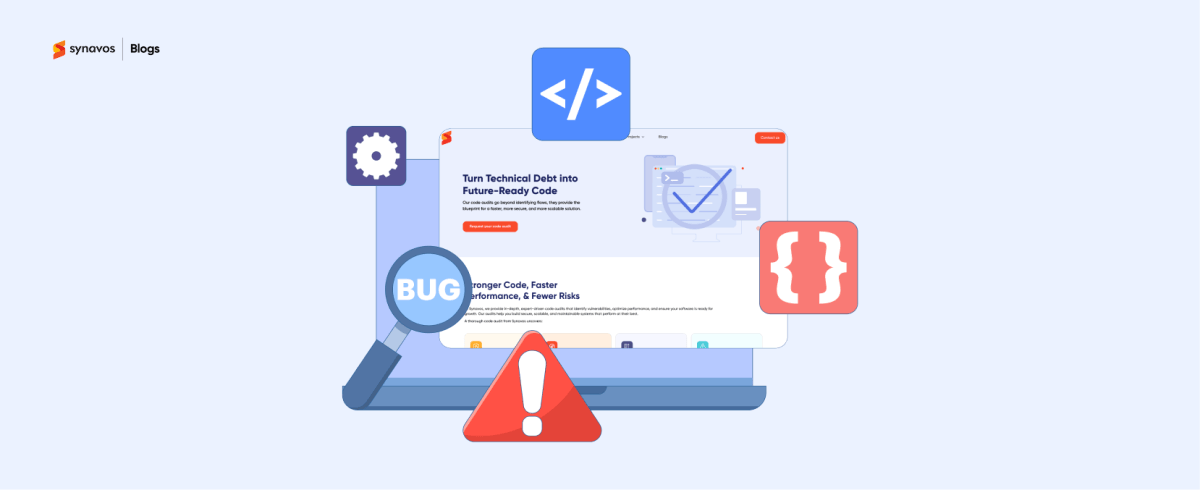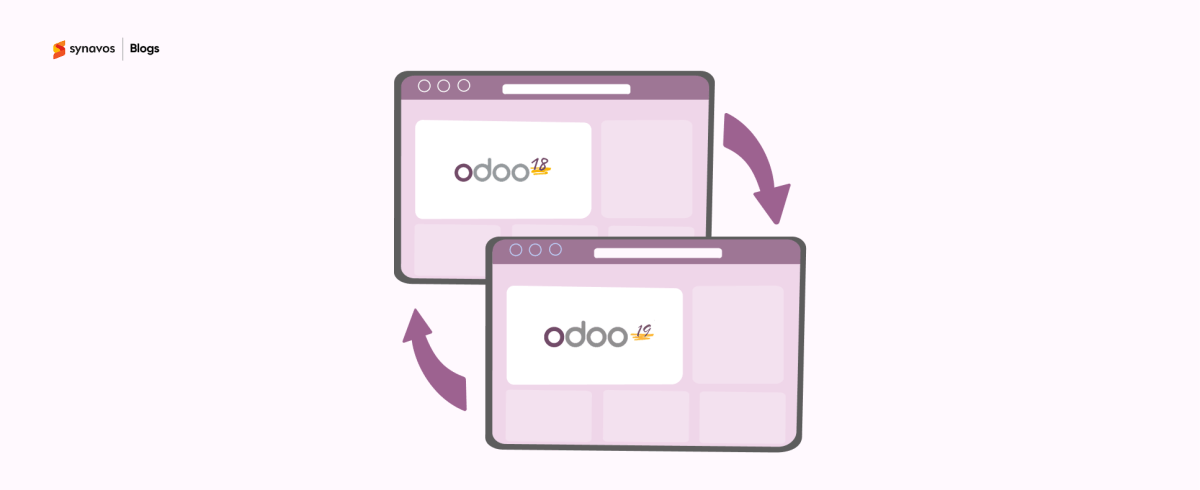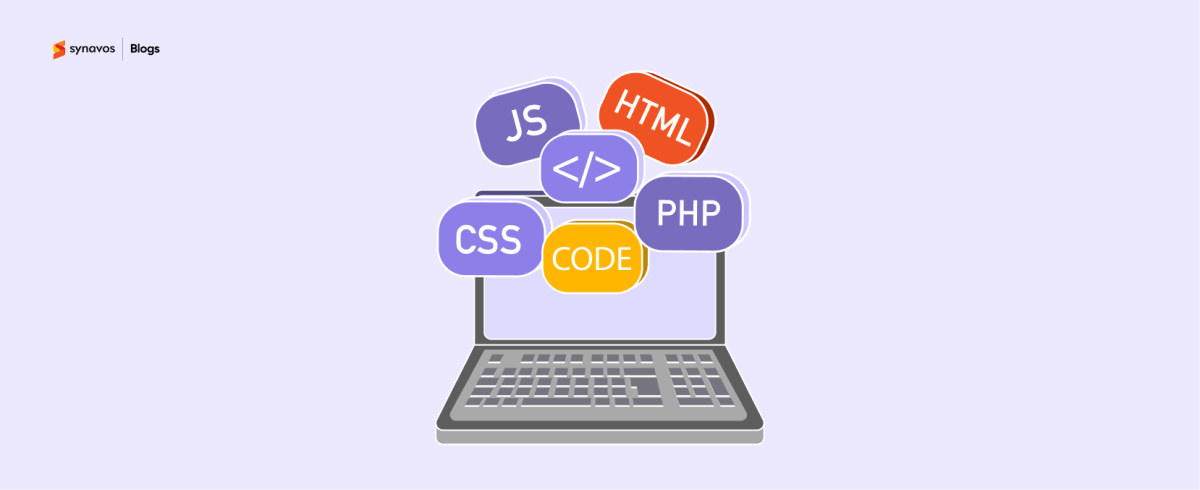Implementing an Enterprise Resource Planning (ERP) system like Odoo is a significant step for any business. Odoo offers a comprehensive suite of applications that can streamline operations, enhance productivity, and improve decision-making across your business. However, to ensure a successful Odoo implementation, businesses must carefully consider several factors.
In this blog, we will explore seven key considerations before implementing Odoo in your business. From defining your business objectives to choosing the right implementation partner, these considerations will help you maximize the benefits of Odoo and avoid common pitfalls.
1. Define Your Business Objectives
Every successful Odoo implementation starts with a clear understanding of your business objectives. Without defined goals, you risk adopting a system that doesn't align with your operational needs. Begin by asking yourself:
- What are the specific challenges you aim to solve?
- How can Odoo help streamline your workflows or improve efficiency?
For instance, if your goal is to optimize inventory management, Odoo’s Inventory module could be a game-changer. Similarly, its CRM module can enhance customer relationship management. By identifying your priorities, you can tailor the implementation to focus on the features that add maximum value to your organization.
2. Assess Your Current Processes
Understanding your existing workflows and systems is crucial before integrating Odoo. Conduct a thorough assessment to identify inefficiencies, redundancies, and gaps in your processes. Consider the following steps:
- Document current workflows: Map out how tasks are currently performed.
- Pinpoint bottlenecks: Identify areas where delays or errors commonly occur.
- Engage stakeholders: Gather input from teams who interact with these processes daily.
This exercise not only highlights areas for improvement but also ensures that the Odoo implementation addresses the unique needs of your business. It’s not about fitting your operations into the software but customizing the software to fit your operations.
3. Evaluate Odoo’s Modules and Features
One of Odoo’s biggest strengths is its modular design, offering everything from accounting to e-commerce. However, the abundance of options can be overwhelming. To make the most of your investment:
- Research the modules: Familiarize yourself with their capabilities and relevance to your business.
- Start small: Begin with essential modules and scale up as needed.
- Consider customization: Odoo’s flexibility allows you to modify modules to better suit your needs.
Many small companies with fewer than 50 users often use Odoo’s standard features without the need for significant custom development. The flexibility and scalability of Odoo’s out-of-the-box modules are typically sufficient for these businesses, allowing them to streamline operations without heavy customization.
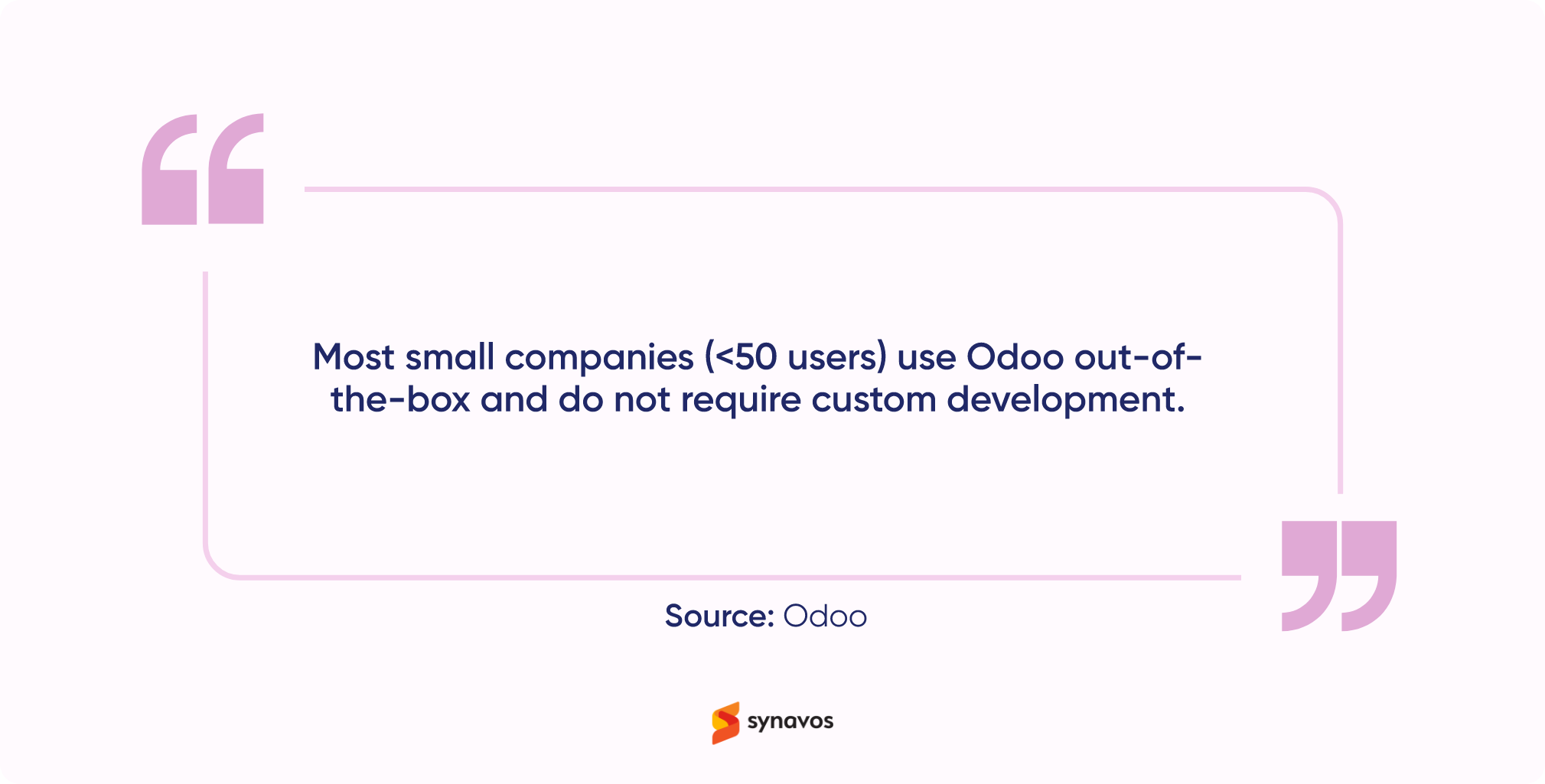
For example, manufacturers might prioritize the MRP (Manufacturing Resource Planning) module, while retailers may focus on POS (Point of Sale). Evaluate your industry’s specific requirements and select modules accordingly to avoid unnecessary complexity.
4. Plan for Data Migration
Data migration is one of the most critical yet underestimated aspects of Odoo ERP implementation. It involves transferring data from your existing systems into Odoo. Poorly executed data migration can lead to operational disruptions and data loss. To mitigate these risks:
- Audit your current data: Cleanse and standardize information to ensure accuracy.
- Define migration scope: Decide which data is essential and which can be archived.
- Test the process: Run pilot migrations to address potential issues early.
Proper planning ensures that your data is not only transferred accurately but is also organized in a way that enhances usability within Odoo.
5. Budget and Resource Allocation
ERP implementations, including Odoo, require a significant investment of time, money, and human resources. To avoid unforeseen costs or delays, establish a realistic budget that covers:
- Software licensing fees: Depending on the modules you choose.
- Customization and integration: To align Odoo with your existing systems.
- Training and support: To ensure smooth adoption by your team.
Additionally, allocate sufficient resources for implementation, including a dedicated project team. A lack of planning in this phase can lead to resource overextension, compromising the project’s success.
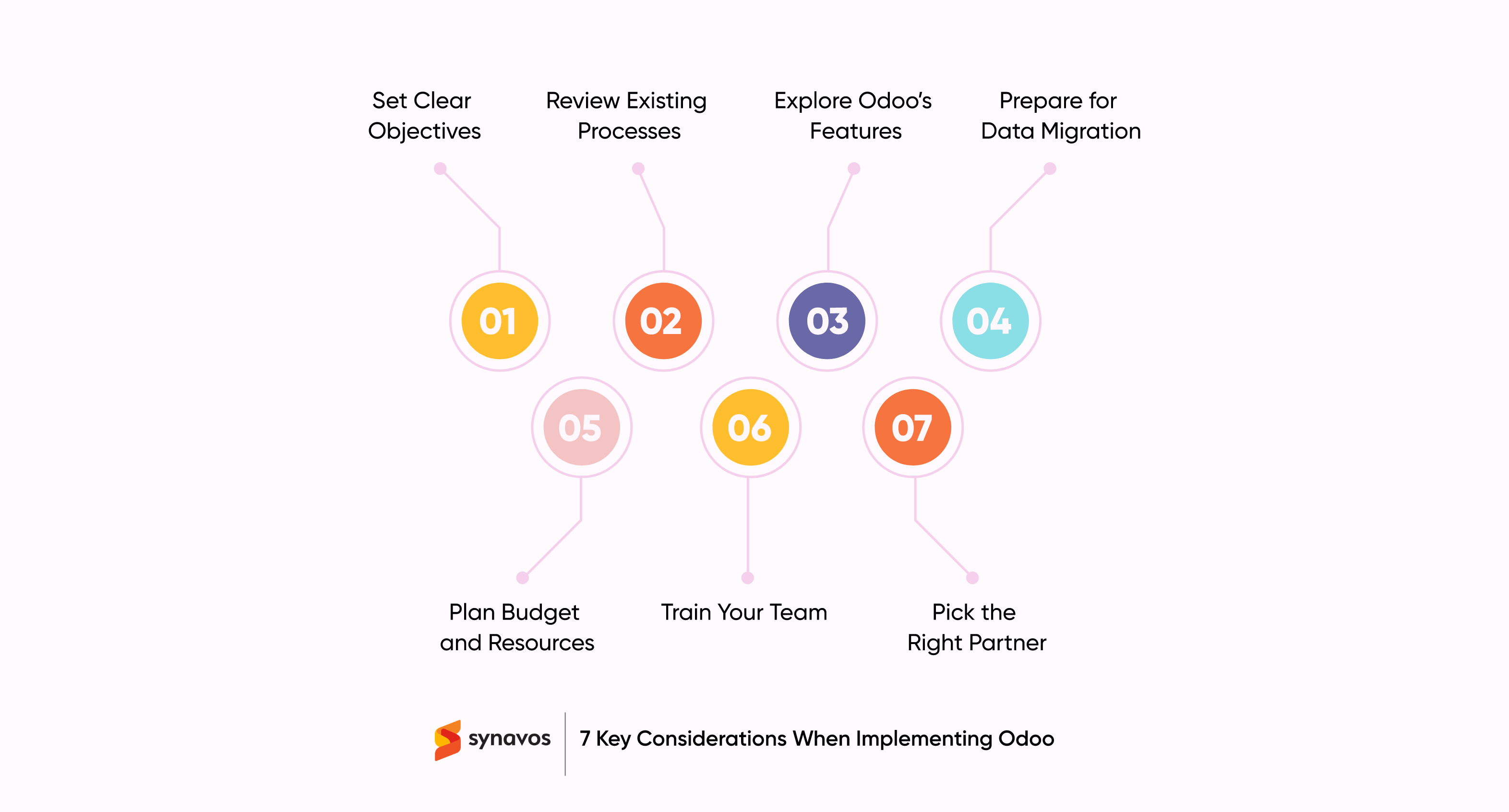
6. Engage and Train Your Team
A well-implemented ERP system is only as good as the people using it. Resistance to change or lack of training can derail even the most robust Odoo setup. To foster a smooth transition:
- Communicate benefits: Highlight how Odoo will make their jobs easier.
- Provide hands-on training: Focus on module-specific skills based on roles.
- Encourage feedback: Allow employees to voice concerns and suggestions.
Engagement and training ensure that your team is not only onboard with the new system but also empowered to use it effectively, maximizing its potential impact on your operations.
7. Choose the Right Implementation Partner
The success of your Odoo project largely depends on your implementation partner. A seasoned Odoo partner brings expertise, industry knowledge, and a proven methodology to the table. When evaluating potential partners:
- Check credentials: Look for certified Odoo partners with a strong portfolio of successful Odoo implementations.
- Assess experience: Ensure they have expertise in your industry and business size.
- Prioritize support: A reliable partner offers post-implementation support to address issues or enhancements.
Choosing the right partner ensures that the implementation process is efficient and tailored to your needs, reducing the risk of costly errors or delays.
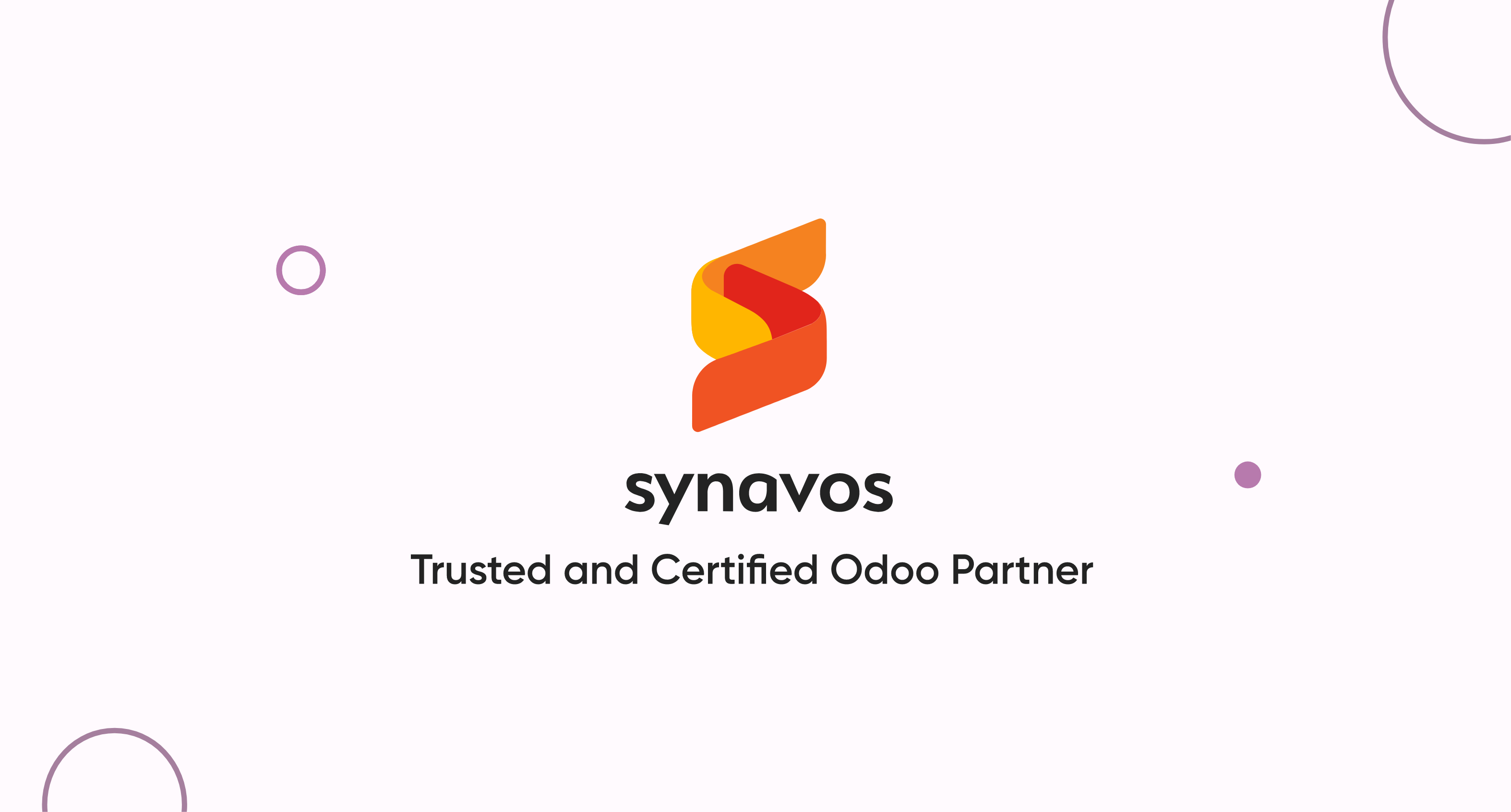
Conclusion: Setting the Stage for a Successful Odoo Implementation
Implementing Odoo can revolutionize the way your business operates, but it requires careful planning. An effective Odoo implementation can be achieved by understanding your business objectives, assessing your current processes, and choosing the right partner. With the right approach, Odoo will help you streamline operations, drive growth, and improve efficiency for years to come.
Why Choose Synavos for Your Odoo Implementation?
At Synavos, we don’t just implement Odoo; we tailor it to your business goals. As an official Odoo Partner with extensive experience in the Middle East and Pakistan, we’ve helped numerous organizations streamline their operations and achieve their objectives.
Our team understands your unique business challenges, delivers customized solutions, and provides end-to-end support throughout the implementation process. With Synavos, you’re not just getting a system—you’re gaining a partner committed to your success.
Ready to make it happen? Schedule your consultation with Synavos today!























